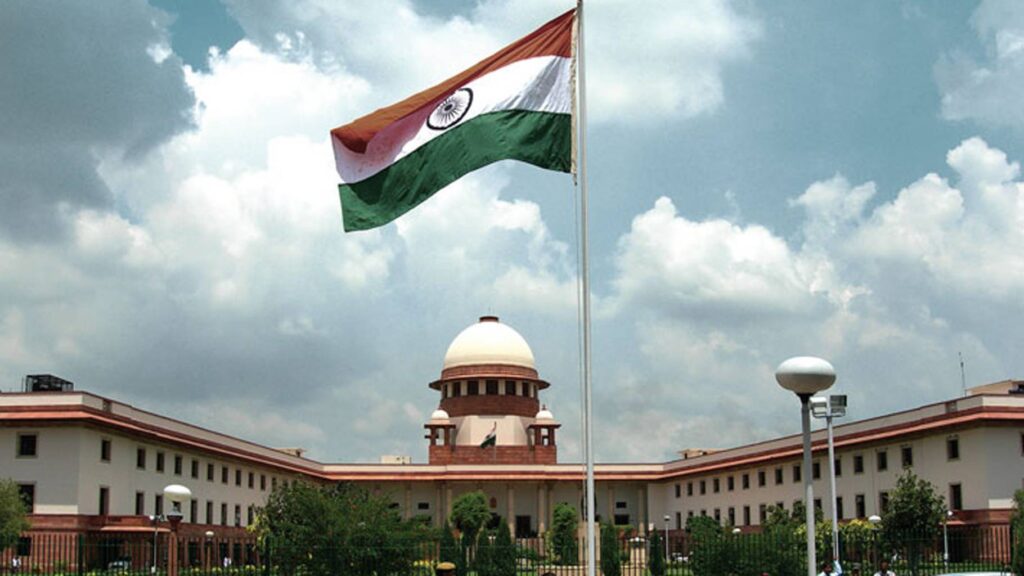Nithyakalyani Narayanan. V
The Supreme Court Bench, comprising Justices Hima Kohli and Ahsanuddin Amanullah, recently noted that changing a candidate’s eligibility or qualifications in the middle of the selection process is improper and would be the same as denying them the chance to be chosen based on the original job advertisement.
The Court was considering a Civil Appeal filed by Anil Kishore Pandit, the appellant, against the Division Bench of the Patna High Court. The Division Bench reversed the Single Judge’s decision and denied the appellant’s candidature for the Amin post, citing the appellant’s mid-selection process overage in accordance with the revised eligibility requirements included in the recruitment advertisement.
The main issue of contention is that the appellant was appointed to the position of Amin as a result of the District Employment Officer, West Champaran, Bettiah, publishing the recruitment notice.
The appellant was initially appointed in accordance with the recruitment conditions specified in the advertisement, which fixed the age cut-off date as 40 years as of January 1, 2011, according to the Single Judge order of the High Court. However, the appellant’s recruitment was later challenged by another candidate, Respondent No. 8, before the Division Bench of the High Court on the grounds that the appellant no longer meets the eligibility criteria and has become overage due to the change in the age cut-off date from January 1, 2011, to November 1, 2011.
The Division Bench reversed the Single Bench Judgement and revoked the appellant’s appointment on the grounds that he had outlived the new eligibility requirements, which set an age cutoff date of November 1, 2011. The Division Bench noted that while the cut-off date of January 1, 2011, was officially specified in the District level advertisement, it was not regarded as inviolable since uniformity regarding the fixed cut-off date had to be upheld throughout the State.
The Appellant filed a Civil Appeal with the Supreme Court because he was upset by the Division Bench ruling made by the High Court.
The appellant argued before the Supreme Court that it was arbitrary to alter the recruitment conditions in the middle of the selection process because the candidate should be chosen based on the rules that were in place on the day the advertisement was published, not on rules that were changed during the selection process.
The Supreme Court noted that the Division Bench of the High Court erred in overturning the Single Bench decision, finding merit in the Appellant’s argument. The Court observed that the 40-year-old age cut-off date was set to take effect on January 1, 2011, rather than the previously announced date of November 1, 2011.
The court noted that a candidate’s ability to be evaluated in accordance with the advertisement becomes irreversible on the day it is published. As a result, any changes made to the advertisement later on in the selection process—unless they are retroactive—cannot be used as a basis for disqualifying a candidate.
In support of this, the court cited its earlier ruling in Mohd. Sohrab Khan v. Aligarh Muslim University and Others, wherein the court rejected the Selection Committee’s decision to modify the qualifications or criteria midway through the hiring process in order to fill the position of post-lecturer in chemistry at the university.
The Supreme Court observed that the deadline for calculating a candidate’s age was subsequently changed from January 1, 2011, to November 1, 2011, without following the required procedures, which include publishing a public notice and soliciting applications from prospective candidates based on the revised deadline.
The court allowed the appeal after determining that the appellant’s age fell within the acceptable range specified in the original advertisement. The impugned judgement was then set aside, directing the appellant to be reinstated on the post of Amin as of June 27, 2015, the date of their initial appointment, and to receive the notional benefits of their position, minus their actual wages, as they had not performed their duties in that role for the previous years.

